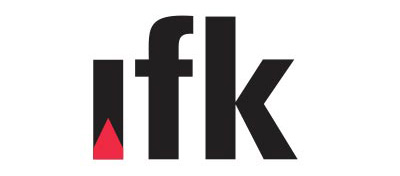Our Partnership

University of Stuttgart (USTUTT)

COUNTRY
Germany

Headquarters
Stuttgart

Year of foundation
1829
The University of Stuttgart’s vision of “Intelligent systems for a sustainable society” stands for consistent interdisciplinary networking integrating engineering, science, humanities and social studies. Two institutes cooperate in the FlashPhos project sharing project coordination and various technical tasks: the Institute for Sanitary Engineering, Water Quality and Solid Waste Management (ISWA) and the Institute of Combustion and Power Plant Technology (IFK).

Institute of Combustion and Power Plant Technology (IFK)
The Institute of Combustion and Power Plant Technology (IFK) at the University of Stuttgart has gained expertise in energy research for more than 50 years and thus holds considerable experience concerning the thermal utilisation of gaseous, liquid and solid fuels such as coals, biomasses and residues like sewage sludge. For all commercially available combustion and gasification systems (i.e.: fixed bed, pulverised fuel/entrained flow, fluidised bed systems and gaseous and liquid fuel boilers), experimental facilities are available with capacities ranging from 5 kW up to 500 kW. In the field of gasification, in these facilities the following main technologies are investigated: sorption-enhanced gasification/reforming (SEG), air gasification, oxygen/steam gasification, and multistage gasification. USTUTT IFK is active in burner development and testing for pulverised fuel combustion and oxy-fuel technologies.

Institute for Sanitary Engineering, Water Quality and Solid Waste Management (ISWA)
The University’s Institute for Sanitary Engineering, Water Quality and Solid Waste Management (ISWA), founded in 1952, with its 100 academic and 30 technical employees is engaged in teaching and research in the fields water quality management, water supply, industrial and municipal wastewater technology and management, waste management and resource recovery, chemical analysis of wastewater and solid waste, measuring and treatment of emissions. The interdisciplinary team lead by four professors is composed of environmental engineers, process engineers, civil engineers, chemists, biologists, food chemists, geologists and geographers. The institute, and particularly its department for Resource Management (RIK) is amongst others specialised on research projects and consulting for industry and authorities in management, treatment and disposal of industrial and municipal wastewater sludges. The recovery of phosphorus from sewage sludge and its ashes has been and is currently the topic of several R&D projects and industry studies. Together with FlashPhos partner MIT, the institute has developed the FP7 project RecoPhos (GA 262652, “forerunner” of FlashPhos) and participated in it as a major partner, with its main focuses on lab experiments, resources management and environmental assessment.
Contacts
IFK
M.Sc. Christian Schmidberger
Project Coordinator
christian.schmidberger@ifk.uni-stuttgart.de
+49 711 685 67762
